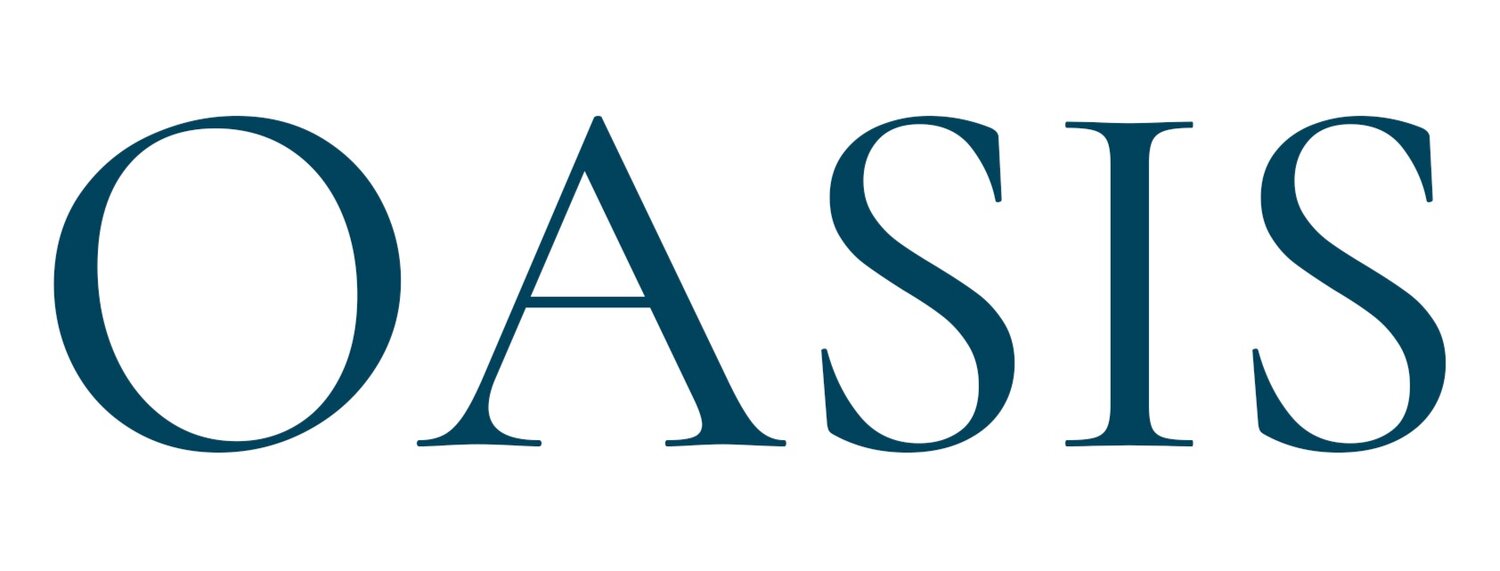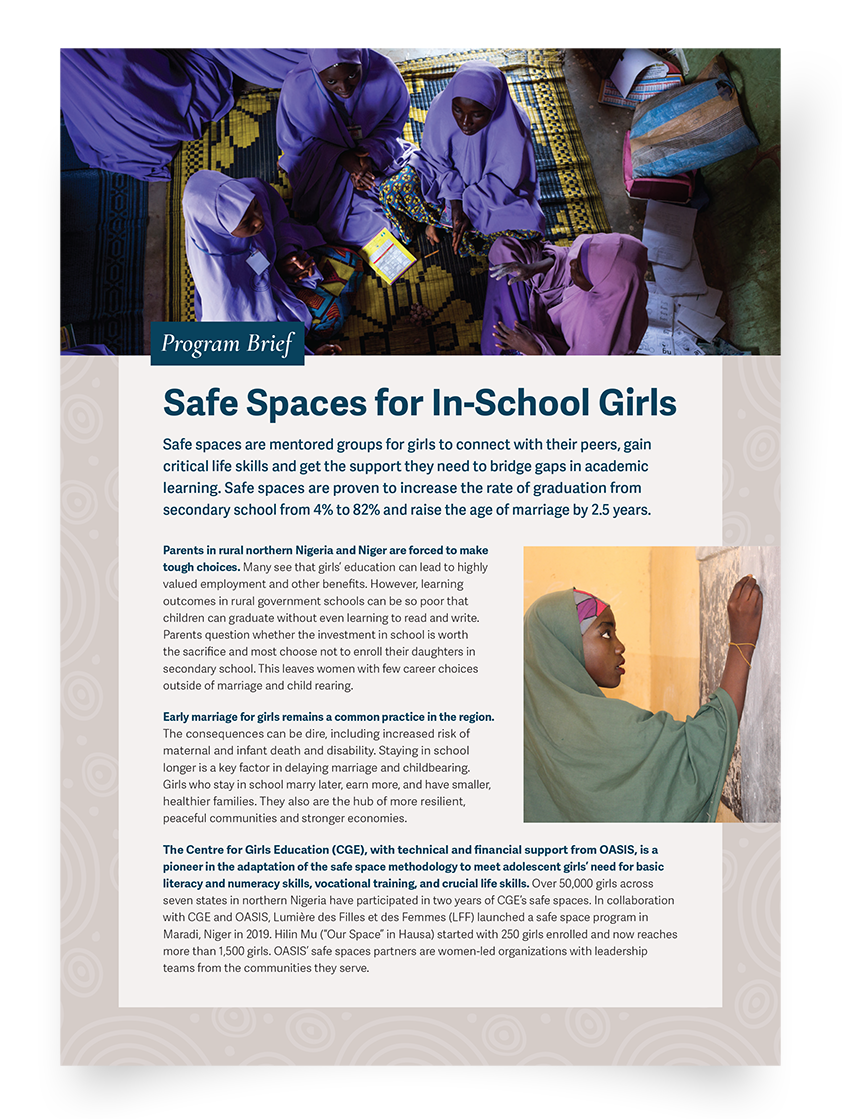
Girls Education
Increasing the quality of girls education through evidence-based safe space programming and developing paths to scale in northern Nigeria, Niger and the broader Sahel.
World Bank overview: Safe Space Clubs for Girls
How does it work?
The Safe Space program engages communities, educates girls, and enhances female teachers’ skills. Safe spaces are led by a female mentor and up to eighteen adolescent girls, who meet for two hours each week, spending one hour on literacy and numeracy and one hour on life skills, such as reproductive health and negotiation. The program:
Enhances rural girls' aspirations, voices, and sense of personal agency
Quadruples rural girls' secondary school completion rates
Increases the average age of marriage in the communities where we work by at least 2 years
The design of the program was informed by deep ethnographic research OASIS conducted in the communities where we work, and the experience of our partner in northern Nigeria, the Centre for Girls Education, which pioneered the safe space methodology.
Program Brief:
Safe Spaces for
In-School Girls
Program Brief:
Safe Spaces for
Married Adolescents
“You could say the girls are being re-educated in the fundamentals they were taught in school but never learned. The mentors sit them down and teach the girls in a practical way, and when they get back home, they share what they learn with their siblings.”
-Father of safe space participant



